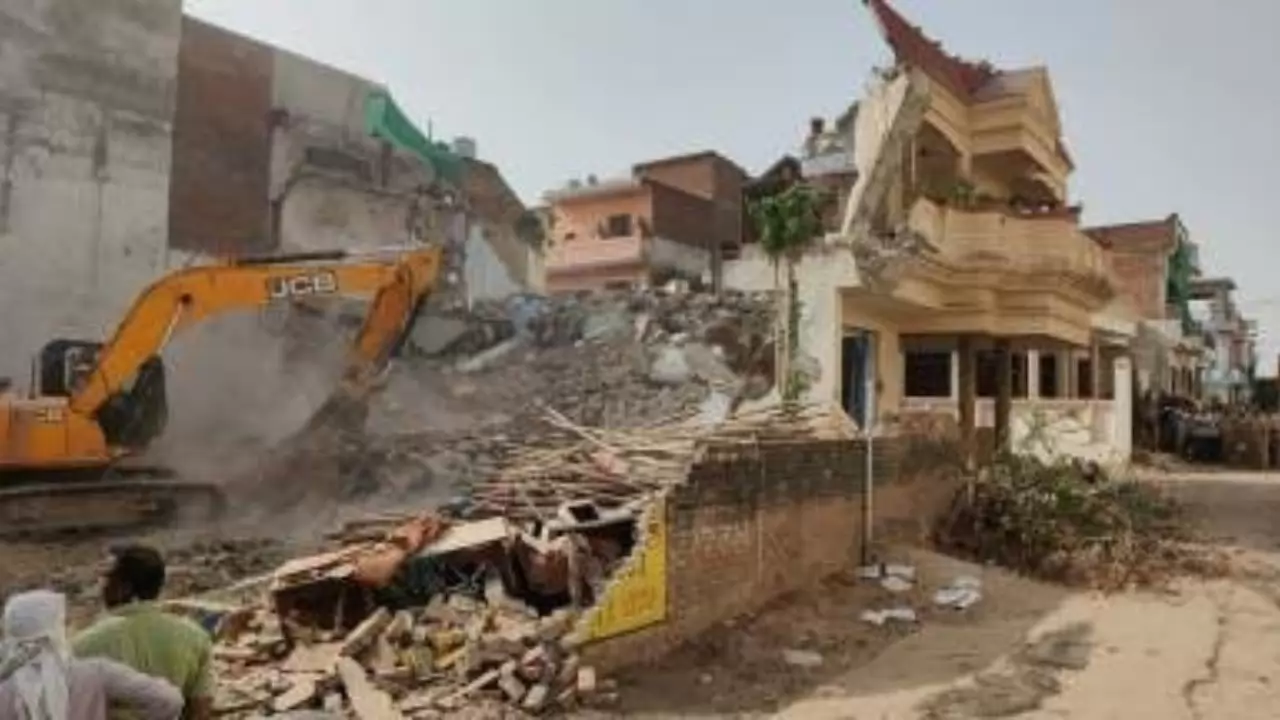
Bulldozer action (X/punny)
Supreme Court terms bulldozer action unlawful: In a strong rebuke to the Uttar Pradesh government, the Supreme Court on Wednesday (November 6) directed it to pay Rs 25 lakh in compensation to a petitioner whose house was demolished without due legal procedure. The apex court, led by Chief Justice of India (CJI) DY Chandrachud, along with Justices JB Pardiwala and Manoj Misra, condemned the “high-handed” approach by the state during demolitions conducted as part of a 2019 road-widening project in Maharajganj district.
The case was heard following a suo motu cognizance taken by the Supreme Court on a letter submitted by Manoj Tibrewal, who raised concerns about the demolition of his ancestral home and shop. Reports presented to the bench indicated that a total of 123 houses were demolished in one sequence without prior notice to the affected occupants.
The Supreme Court expressed shock at the demolition process, questioning the state’s disregard for due process. “How can you just enter someone’s home and demolish it without serving notice?” the bench asked, adding, “You can’t come with bulldozers and demolish the house overnight.”
In its directive, the Supreme Court instructed Uttar Pradesh’s Chief Secretary to investigate the demolitions and ensure accountability among the officials involved.
Describing the state's approach as unlawful, the Supreme Court ruled that the entire demolition action was a display of "high-handedness." The court mandated punitive compensation and ordered an investigation by the Chief Secretary of Uttar Pradesh into all instances of illegal demolition, including holding contractors accountable. The court also emphasized disciplinary action for any officials responsible for the demolition without due authority.
The Supreme Court ordered the Uttar Pradesh government to compensate the petitioner with Rs 25 lakh and to initiate criminal proceedings against those found to have violated legal protocols. The bench further stipulated that the order should be enforced within a month, directing the registrar to distribute the ruling to other states to ensure proper procedures are followed in future road-widening projects.
The Supreme Court outlined specific steps for the state to adhere to in future road-widening activities:
The SC's decision serves as a significant reminder of adherence to legal protocol, especially in cases impacting residential and ancestral properties.





Copyright © 2026 Top Indian News
